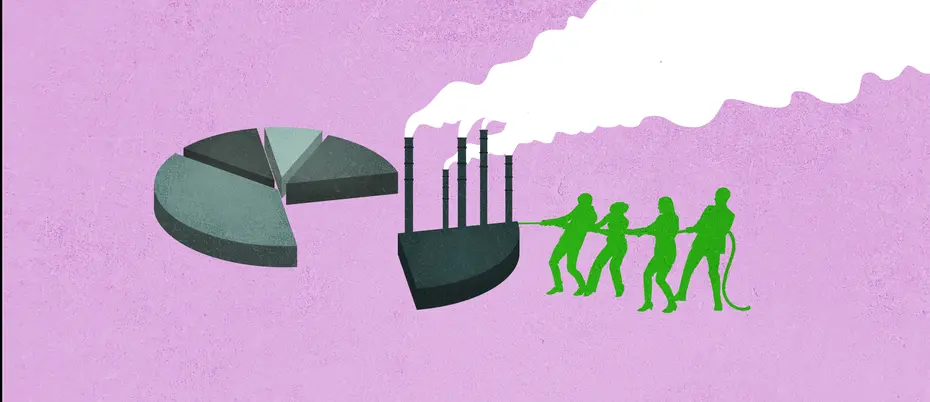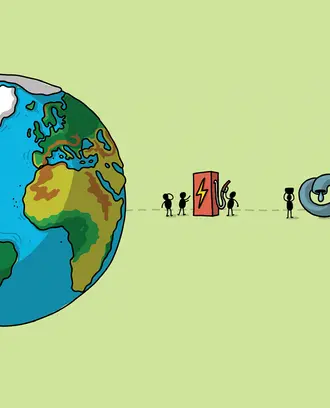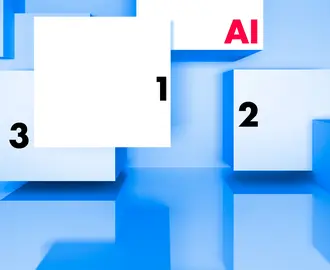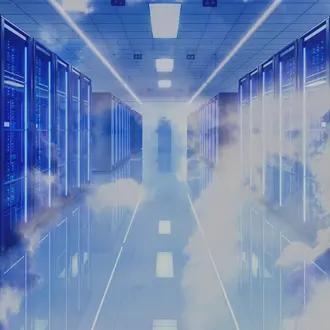Climate Change
At MIT Divest, all ideas welcome in pursuit of one big goal
MIT Divest’s horizontal organization cultivates — and is inspired by — collective action.
In September, Harvard University announced it would halt new investments in fossil fuels and wind down investments in funds with fossil fuel holdings. While Harvard president Lawrence Bacow didn’t use the word “divest,” environmental advocates logged a win in the fight to add the richest university in the world to the growing list of institutions divesting from fossil fuels.
Other universities and organizations followed suit. MIT has not. Advocates of divestment say it makes fossil fuel investments less attractive for others and accelerates investment in renewable energy. And, they ask, should an organization combating climate change provide financial support to fossil fuel extraction? Opponents of divestment say it doesn’t work and could even be counterproductive. Following the announcement in May of an MIT climate action plan, MIT vice president for research Maria Zuber told The Tech, a student-run newspaper financially independent of MIT, that fossil fuels stocks and companies “provide a critical product on which [MIT] depends” and that divestment possibly wouldn’t “accelerate progress towards decarbonization.”
The team at MIT Divest, a student group, builds support and advocates for fossil fuel divestment at MIT. There is a petition and two pledges — one asking students, alumni, and others to commit to not work for fossil fuel companies, the other asking people to halt donations to MIT’s unrestricted fund until MIT divests its endowment from fossil fuels.
It’s about collective action, and in that spirit, the MIT Divest team opted to talk not about “My idea made to matter,” but rather “Our idea made to matter.” Below they explain how they work as a group, and how stakeholders can advocate for change in an organization.
What inspires you?
Simply put, we are faced with quite possibly the biggest challenge humanity has ever known. Climate change is already affecting millions of people, and its continued consequences will impact all of us and everyone we know and love. So much innovation and change has come out of MIT, which deeply inspires us to take advantage of the resources and influence we have here to make a lasting difference, however we can, to preserve our planet for ourselves and countless generations to come.
Who inspires you?
Even in the face of climate disaster, so many like-minded and passionate individuals give us hope that we will achieve our immediate goal of divestment and ultimately begin to secure a better future. Whether it’s other members of Divest, professors and students on the cutting edge of climate science and innovation, young activists around the globe, or Indigenous leaders and communities who have been committed to protecting land and water for thousands of years, the coalition of people dedicated to saving our planet is such an inspiring force.
Where do you get ideas?
We aren’t the first group in favor of divestment, and certainly not the first fighting for environmental and energy justice. We can look to thousands of other activists, past and present, for ways in which we can effectively spread our message. Collaborations with other climate activism groups like XR for rallies and brainstorming sessions with divestment advocates from other campuses are pretty regular occurrences. We've also held several learning groups both within the campaign and in the broader MIT community in the past few years about environmental justice and how to achieve change. Applying the work others have done to the players and situation at MIT is a key part of how we develop our strategy.
How are new ideas discovered and developed in your organization?
Related Articles
Anyone in MIT Divest can bring their ideas to the table; it’s something we try very hard to facilitate. We often come up with ideas on what to do in response to current events, and try to have more freeform discussion once we decide we should do something. Whether it’s shared with the whole group or within a smaller subteam, we encourage everyone involved to share their input on the idea and brainstorm how to most effectively implement it.
How do you keep track of new ideas?
We are big on documentation. Our Google Drive contains all of our meeting notes as well as current and past projects, neatly categorized for quick and easy access. We like to organize things with actionable items given to different people so that everyone has a concrete goal to work towards. We also use Slack to stay in touch outside of meetings so spontaneous ideas can be discussed and documented. This platform allows us to asynchronously share project updates and other thoughts with the entire team in our various channels and communicate with individuals to coordinate work throughout the week.
Who do you share new ideas with?
To make MIT and the world a better place, we have to get everyone around us involved. Together, we can put enough pressure on those who can directly enact systemic change to do so at the faster rate we need. In order to reach out to MIT students, faculty, and other members of the community and get them excited about our new ideas, we publish pieces in The Tech, hold events like the Divestment Day of Action, and spread relevant information on social media, to name a few.
How do you test ideas?
Armed with our idea and a couple backup plans, we often just go for it! Even if things don’t entirely pan out, we learn a lot from what ends up working and what doesn’t. When it’s time to revisit the idea, we have a much better sense of how to execute. No matter what happens, we end up educating more of the community about our mission.
When do you know it is time to abandon an idea?
A lot of it comes about through reflection, especially if new, relevant information comes to light. Another common route is through continued conversation: A different perspective can easily show an idea to be in need of an update. Sometimes, no matter how much we iterate and improve and attempt to implement, an idea never seems to work out, indicating that we should probably leave it for now.
How do you know an idea is a good one?
A good idea is one that gets our team excited and brings other people in, one that we feel can help press our cause further. The more we can bring awareness about divestment and show people the goals of our campaign, the closer we get to our goal.
What's the biggest idea you are working on right now?
Our biggest goal for the moment is in our name: We want MIT to completely divest from its holdings in the fossil fuel industry. We believe that when MIT — being the internationally recognized school it is — makes decisions, those decisions carry weight in the academic world and beyond. If MIT divests, it sends a powerful statement to other universities, fossil fuel companies, and the world at large that we stand by the science: Fossil fuels are neither healthy nor viable for the future, and fossil fuel companies are not a moral or financially savvy investment.
At MIT Sloan, we talk about ideas made to matter — ideas that are carefully developed and have meaningful impact in the world. In that context — what is your idea made to matter?
Climate change, like so many other issues affecting the world today, disproportionately affects the least fortunate. Delegating climate solutions exclusively to those in power leaves out the most important viewpoints, and often doesn’t emphasize the gravity of the situation. The crisis may affect us all, but the most well-off will have the resources to keep themselves (quite literally) afloat for much longer. Conflicts of interest abound in our governing bodies, which raise severe concerns about what lawmakers are willing to change regarding fossil fuel interests.
Ultimately, we believe collective action is so important because it sidesteps both of these problems. Horizontal organization encourages equal footing for everyone and their ideas. For example, Indigenous groups are finally being recognized for their long-standing contributions to climate activism and environmental stewardship, but their voices are often outnumbered by fossil fuel interests, like at the recent COP26 summit. Solutions built within traditional power structures tend to lack diverse input, which is essential in saving the planet and solving other complex problems.
Additionally, building large coalitions of like-minded individuals ensures no one’s personal interest outweighs the issue we need to solve. Even without direct influence on the decisions made, countless historical achievements tell us that collective action is a powerful force. If enough stakeholders disapprove of the institutions around us, we can bring them to a halt until they change for the better. 82% of MIT undergraduates surveyed and 58% of faculty members surveyed are in favor of divestment; the Cambridge City Council and the mayor of Boston are too. What are we waiting for?




